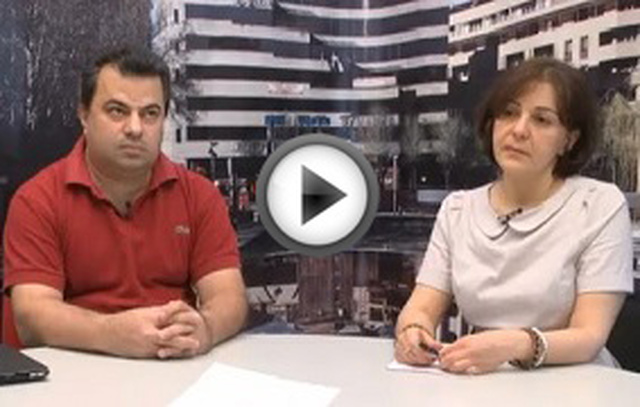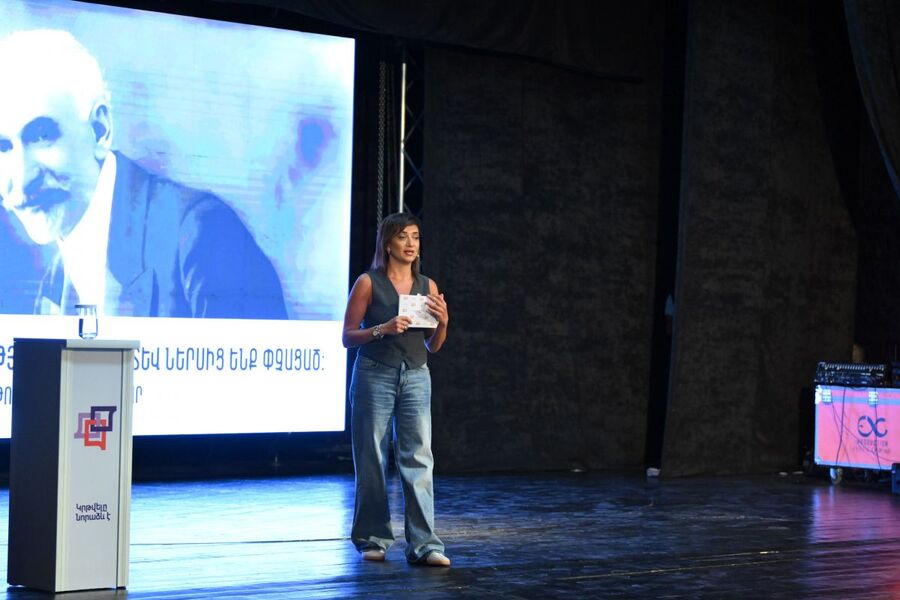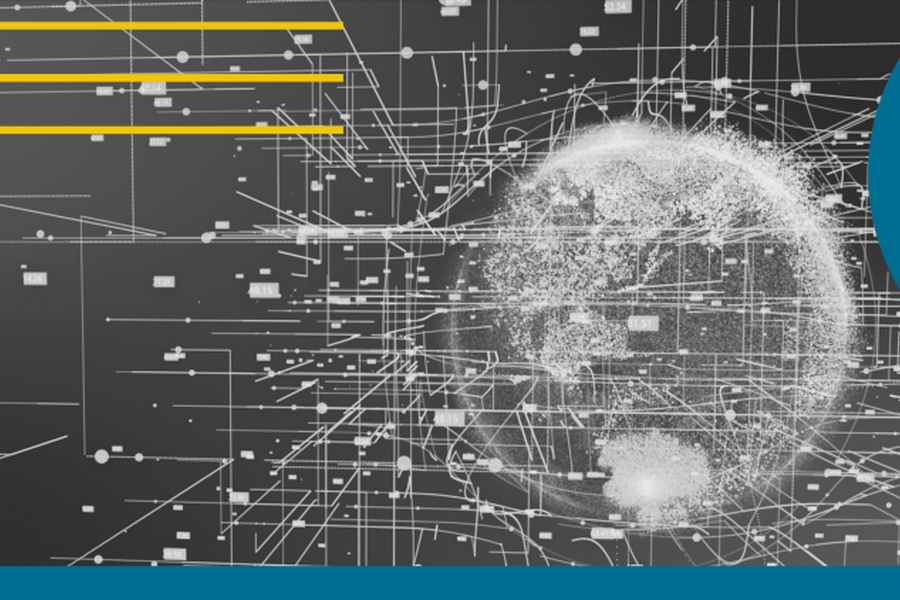"The Crossroads of Views" program hosts Sona Ayvazyan
On May 11, 2013 Sona Ayvazyan, Deputy Director of Transparency International Anti-corruption Center took part in "The Crossroads of Views" program by Radio Liberty. Emin Yeritsyan, Head of the Armenian Delegation to the Congress of Local and Regional Authorities of the Council of Europe and President of the Association of Municipalities of Armenia was another guest of the program. They addressed and gave assessments to Yerevan City Council Elections, held on May 5, 2013. Even after the recount the situation recorded on the election day was not changed. The guests on the program answered why the elections failed to get positive assessment.
In the opinion of Sona Ayvazyan the recount usually achieves results should mass ballot box stuffing occurred in favor of a political party. Together with a group of partners, TIAC carried out election observation mission in 113 precincts of 4 electoral districts. Only on the election day the observers sent 570 alerts. According to monitoring results, mass ballot box stuffing was not recorded during these elections. However other mass violations were committed, such as instances of multiple voting, psychological pressure on and direction, and busing of voters by public transport such as minibuses, fixed route taxis, "Bogdan" buses, which is abuse of administrative resources. In a number of polling stations "carousel voting" was exposed, which is violation of secrecy of vote.
When people enter the precinct, they know what people they should approach to get direction how to vote. Commission chairpersons in no way regulate the overcrowdings. They do not call police to keep the rules. It was done deliberately as a part of role-playing and a scenario of achieving appropriate results.
Overcrowdings in and outside polling stations with the participation of neighborhood authorities, neighborhood thugs and a number of proxies put direct pressure on voters. Sona Ayvazyan partly agreed with preliminary conclusions of the Congress of Local and Regional Authorities of the Council of Europe in a sense that actually year-by-year, the elections are better administered with less instances of violations. However, elections are held cleaner due to vote buying and threatening. Ballot boxes and protocols were not stolen (though in some polling stations of the precincts observed by the initiative representatives journals of records and seals were removed and later returned). In this respect in many precincts, there was some level of organized administration, which happened due to the respective commission chairpersons well awareness of law, respecting their reputation and political forces balanced overseeing. Nevertheless, there were overcrowdings outside those precincts that exerted psychological pressure. Since such overcrowding is banned by law, its occurrence is of course, violation of law but the police fail to take any steps to enforce law.
Four electoral districts turned down nearly 160 claims filed by "Citizen Observer" Initiative to district electoral commissions with the same texts, without duly considering the substance of the claims, and refrained from initiating proceedings to consider all relevant evidence. The Initiative is going to file a complaint to administrative court. The initiative is also ready to submit the materials to all political parties, including those that violated the law.
As for the election commissions, of course they face an issue of qualification. Instead of focusing on conducting trainings and tests for observers and making their activities more difficult, relevant bodies should have better to educate the commission members. However, she was convinced that though they were well aware of the legislation, commission members rather preferred to maneuver it. Sona Ayvazyan has an impression that it is of systemic nature that the commissions during their trainings learn special methods in order not to register the election violations pointed by observers and proxies. The commissions fail to involve the police, fail to prevent overcrowdings neither inside or outside the polling stations. There is a general impression that they are reluctant to make efforts to hold better elections.
Nearly half of Yerevan residents did not participate in the elections. In the opinion of Sona Ayvazyan it was the frustrated part of population who did not vote, since after the presidential elections when the elections had evidently a different outcome not achieving the goal of transfer of power they did not have any confidence in the institute of elections in view of insignificance of their votes. Observers should not only influence public opinion. They have a right to oversee the elections and push the chairpersons to register the violations that needed to be registered.
Sona Ayvazyan welcomed Final Report of OSCE/ODIHR Election Observation Mission on Presidential Elections in Armenia. The fragment on Recommendations reads that citizens and accredited
observers, should have an opportunity to file complaints against decisions and actions against the election results in case of electoral offences. Sona Ayvazyan thinks and hopes that they would be reflected in the amendments to the Electoral Code.
The assessment of "Citizen Observer" movement is that the recurrent scandalous elections were held. No step forward, and unfortunately, the Armenian authorities rely not on the people but rather on the oligarchs money and the neighborhood thugs, which is the foundation of the Armenian authorities, so that the elections in Armenia and essentially their outcomes are heavily based on that foundation.





